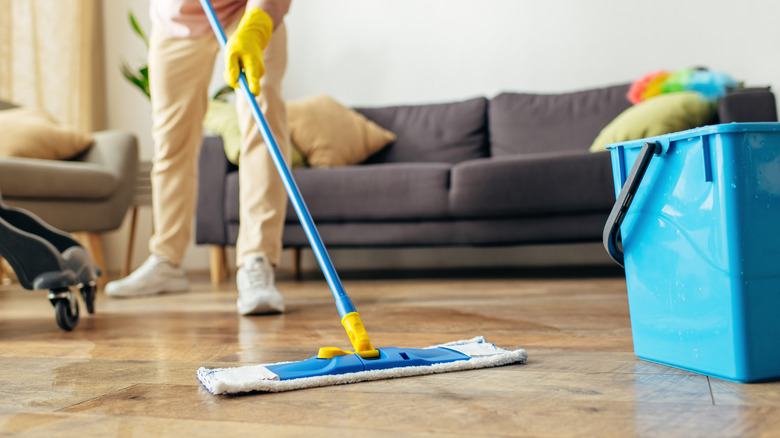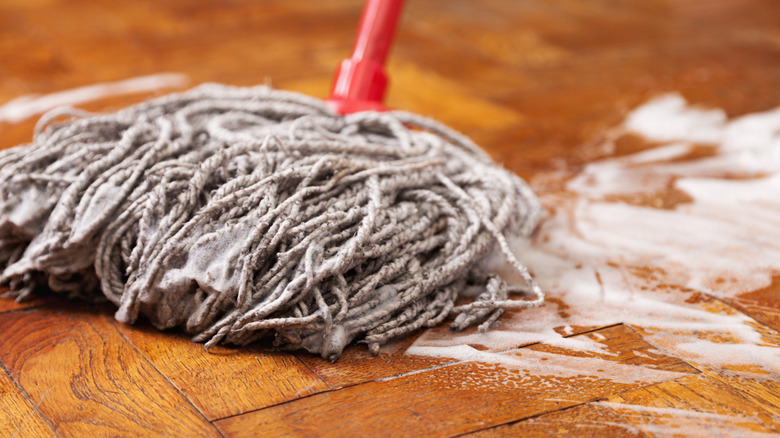Easily Clean Greasy Floors With Two Cheap Items Everyone Has In Their Kitchen
High-traffic areas in the home can easily become greasy. Whether it's leftover spills, the residue of cleaning products, or kitchen grease splatters from an appliance, your floors are inevitably going to have grease buildup over time. Spot cleaning greasy patches can temporarily solve the problem, but you'll want to give your floor a thorough deep clean every now and then to prevent a greasy film from forming and to keep your floors cleaner for longer. Luckily, you don't need access to any expensive cleaning products to clean your greasy floors. There are two cheap items in your home that will easily tackle this, and that's dish soap and water.
Dish soap is a wonderful degreaser that quickly breaks down grime without being strong enough to damage your floor. Of course, you're going to want to have access to a few cleaning tools that will help you do the job. A microfibre flat head mop, or a more traditional one, will do just fine, a bucket for your mixture, and perhaps a spare microfibre cloth to work at any tough patches. You'll want to clean your greasy floors either in the morning or at nighttime, when there is less foot traffic, so you won't have to worry about having enough drying time.
How to clean greasy floors with soap and water
To effectively degrease your floors, you'll want to mix two tablespoons of regular dish soap with a gallon of water in a bucket. Take your mop and dip it into the solution, then wring it out. Using firm pressure, clean your entire floor and then let it sit for around five minutes for the soap to work its magic. After this time has passed, you can rinse the floor with clean water and let it fully dry. If you are left with any stubborn patches, take a microfibre cloth, dip it into your soapy water, and give it a spot clean.
You may be wondering what temperature the water should be to achieve the best results. Well, cold water is fine. But, to make the cleaning process as efficient as possible, warm water is much more effective at loosening any dirt or grease and will also help to kill any bacteria that are present.
The good news is that it's the best way to clean every type of flooring in your home without causing damage. When it comes to hardwood floors, especially those that have been untreated, be sure to thoroughly squeeze out any excess water from the mop beforehand; this will prevent too much moisture from seeping into the wood and causing any potential damage.

